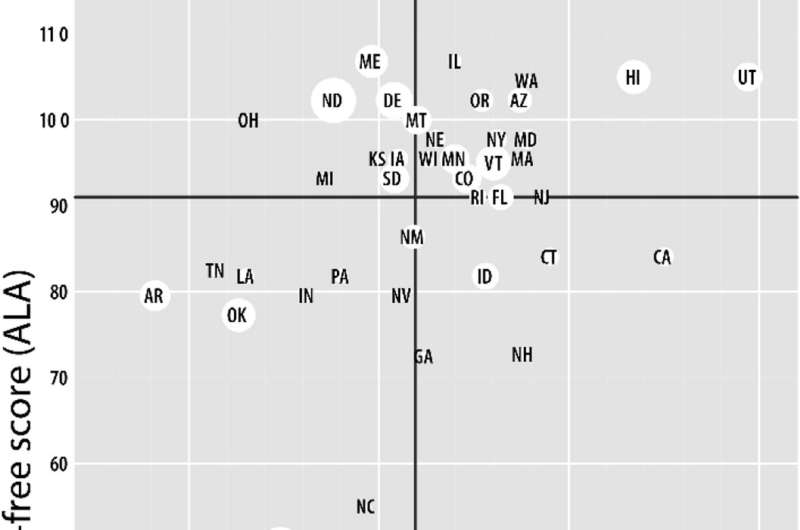Quadrant stratification for state selection. Credit: Implementation Science (2024). DOI: 10.1186/s13012-024-01340-4
State tobacco control programs that used a new training model were better able to sustain operations, finds a new study from the Brown School at Washington University in St. Louis.
The study, titled "Action planning for building public health program sustainability: results from a group-randomized trial," was published this month in the journal Implementation Science.
"This is the first study to test a training model designed to increase sustainability of public health programs," said Sarah Moreland-Russell, an associate professor of practice and the study's first author.
The training was most beneficial for programs that had made less progress in implementing tobacco control policy, researchers found, implying that tailored training may be most appropriate for struggling programs.
"Public health impact can only be realized if evidence-based programs are able to sustain their work over time," Moreland-Russell said. "A training model that is effective in helping programs build their sustainability is therefore an important tool for public health practitioners."
More information: Sarah Moreland-Russell et al, Action planning for building public health program sustainability: results from a group-randomized trial, Implementation Science (2024). DOI: 10.1186/s13012-024-01340-4
Provided by Washington University in St. Louis
























